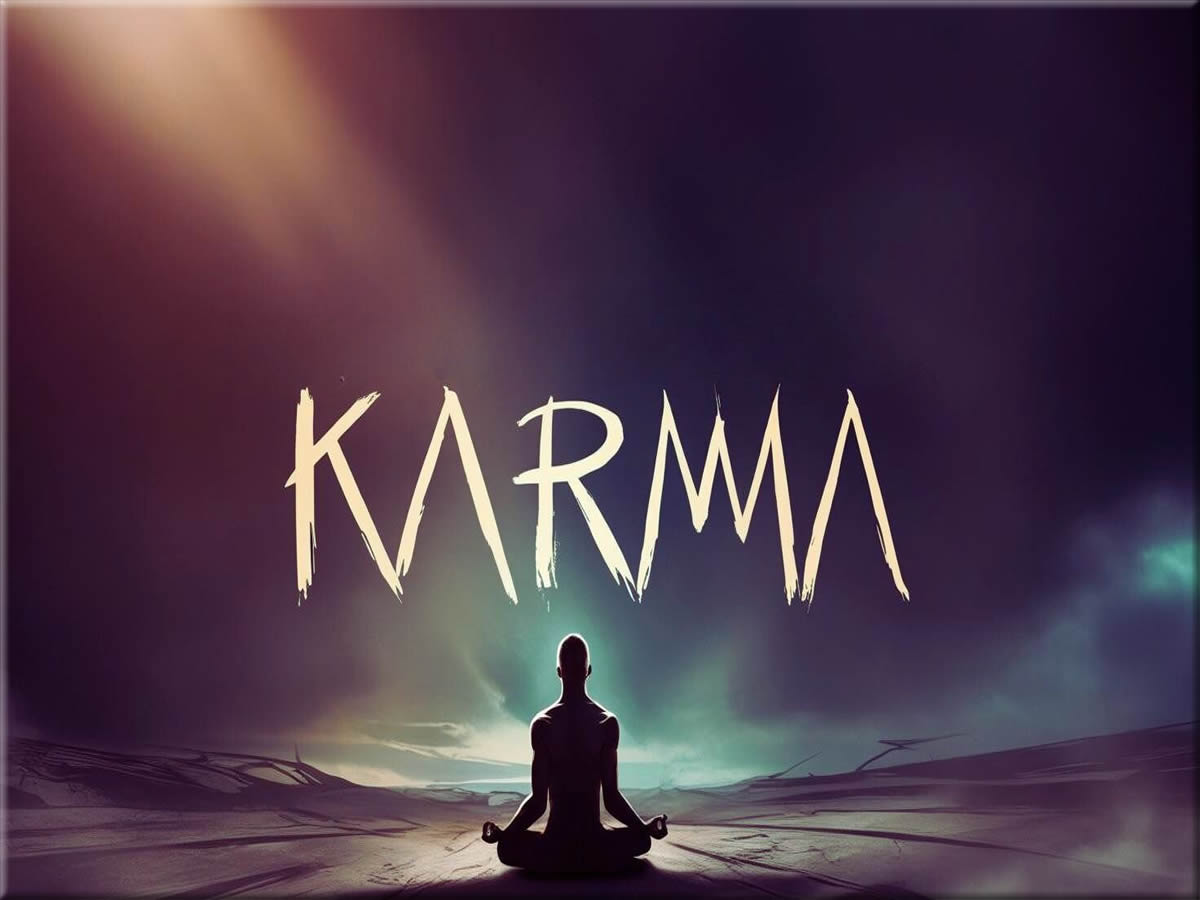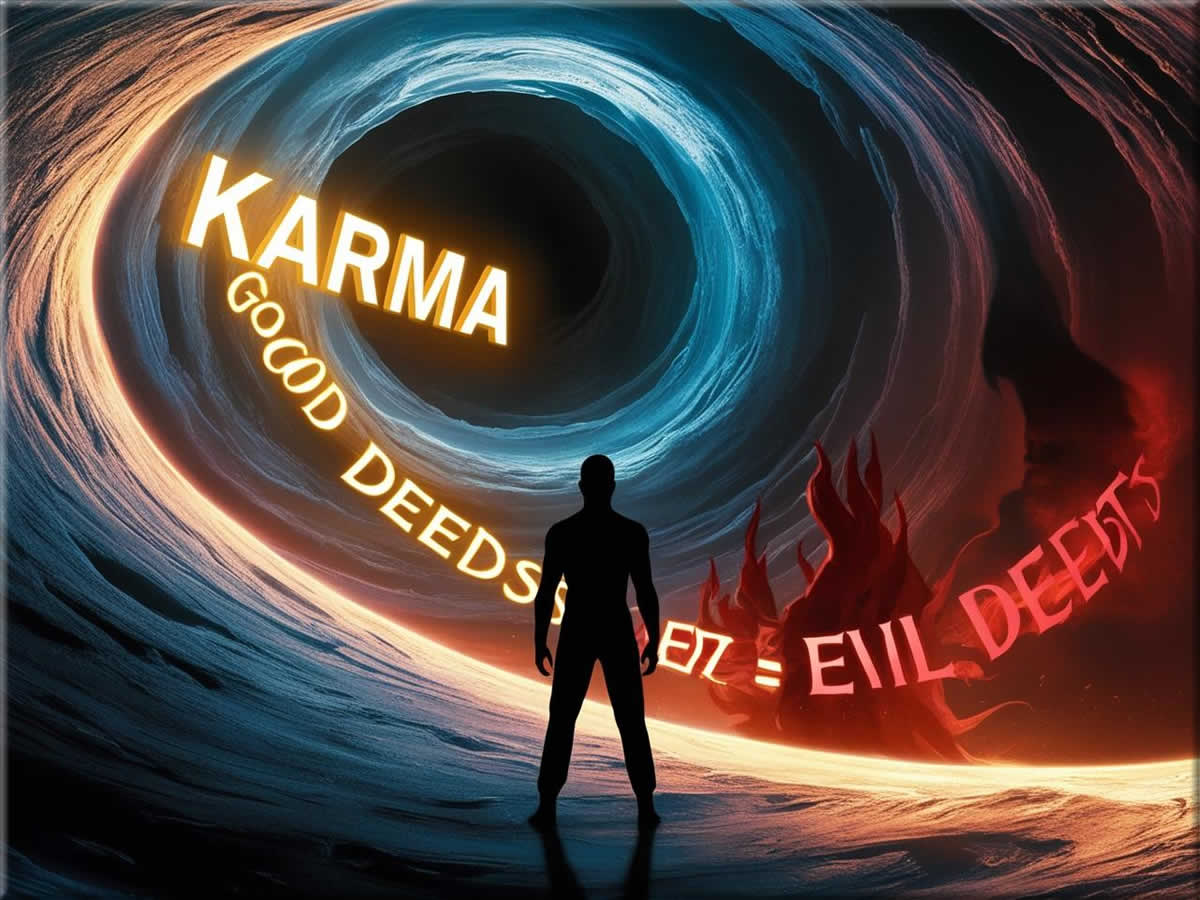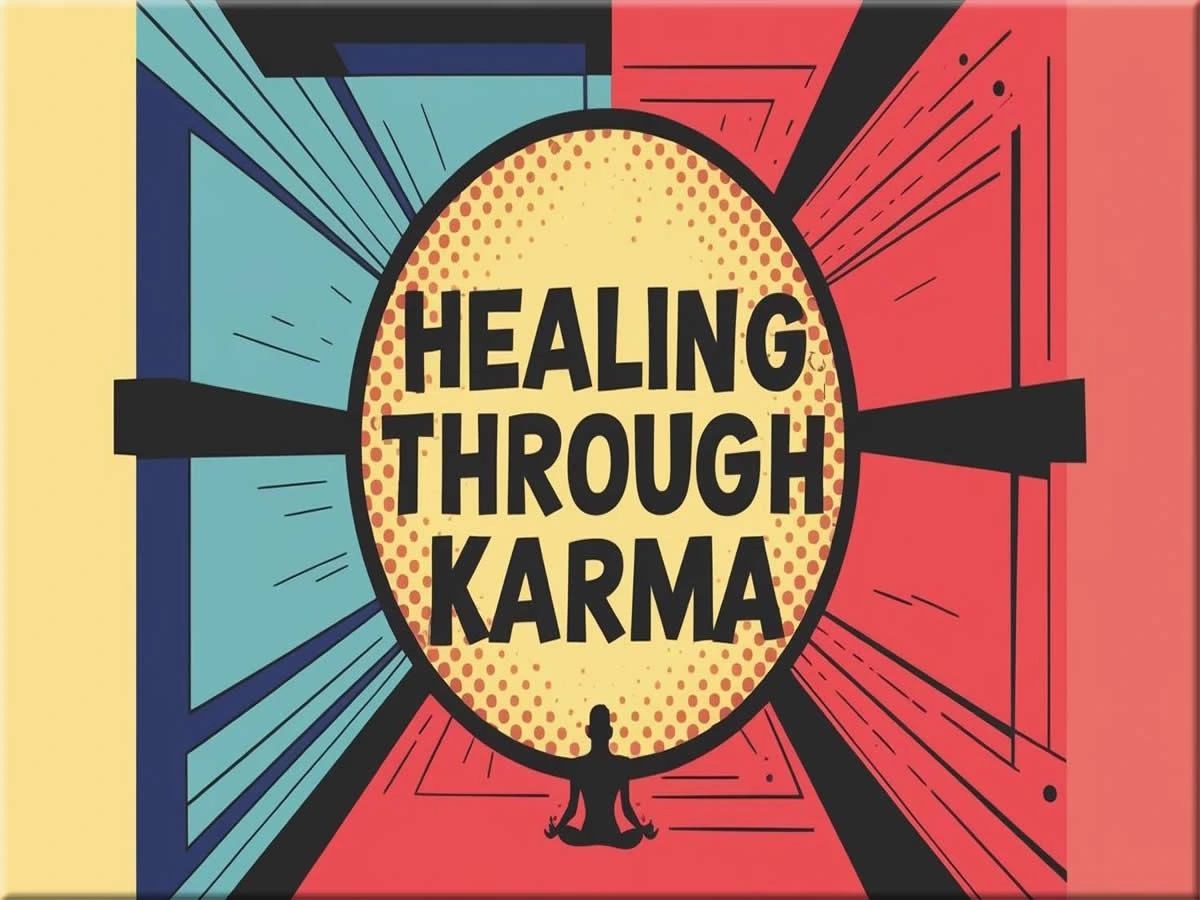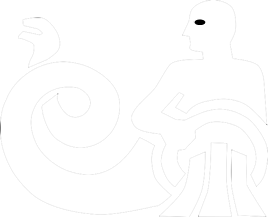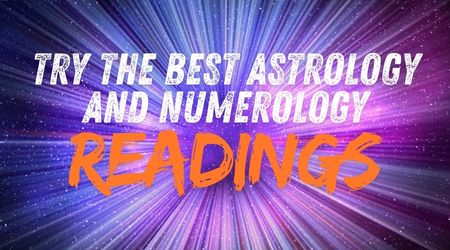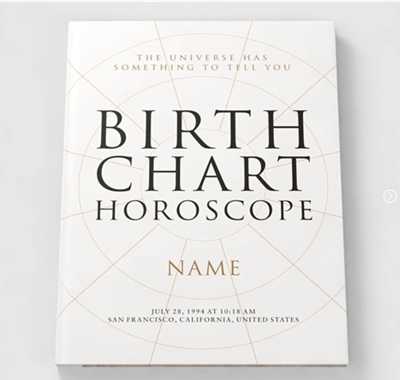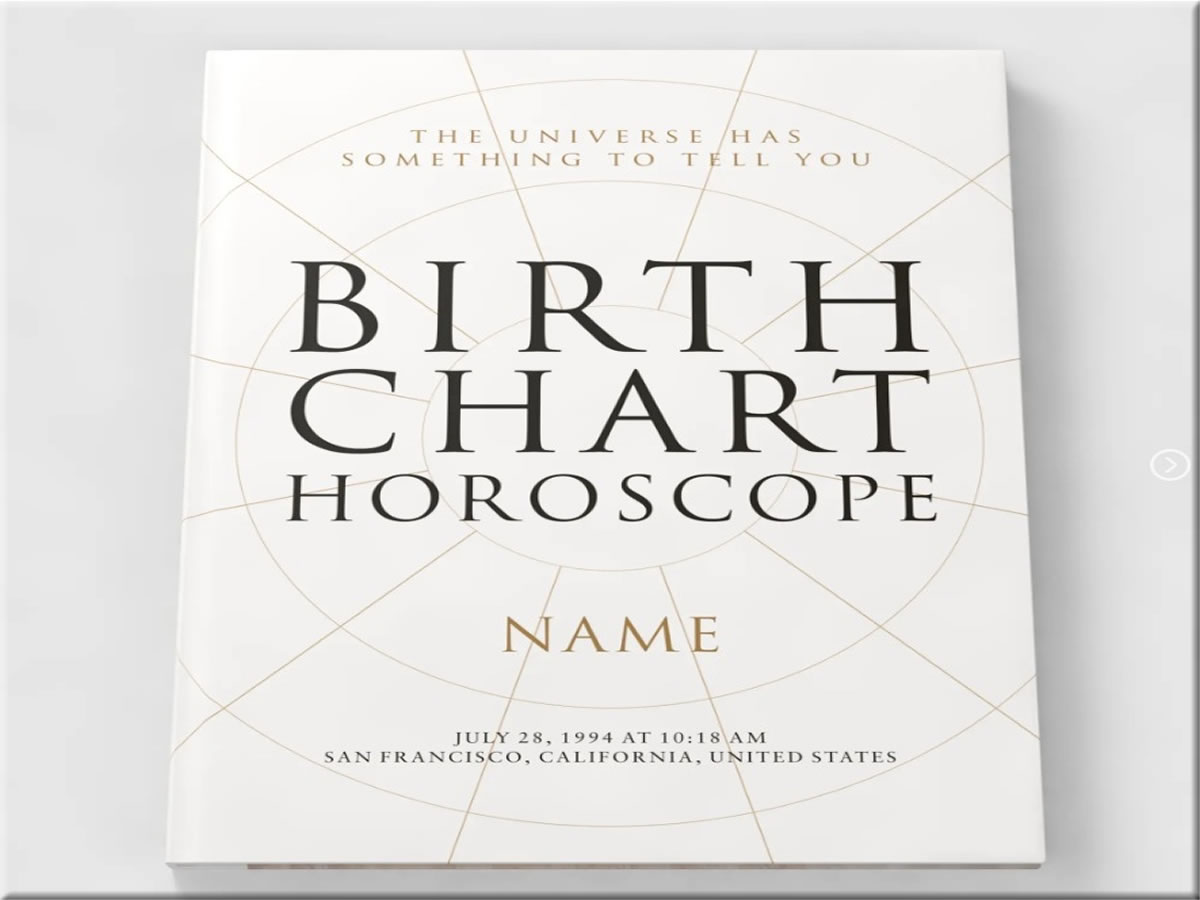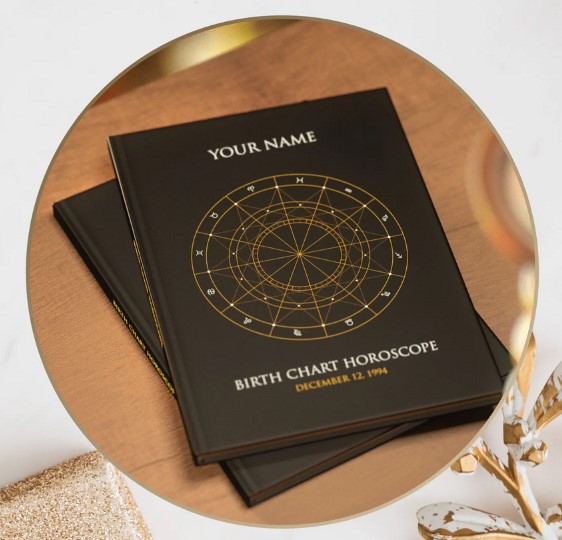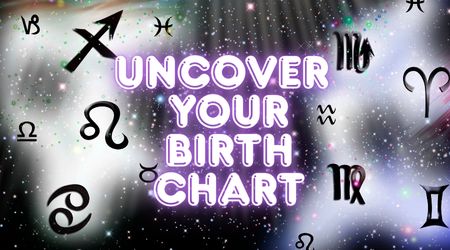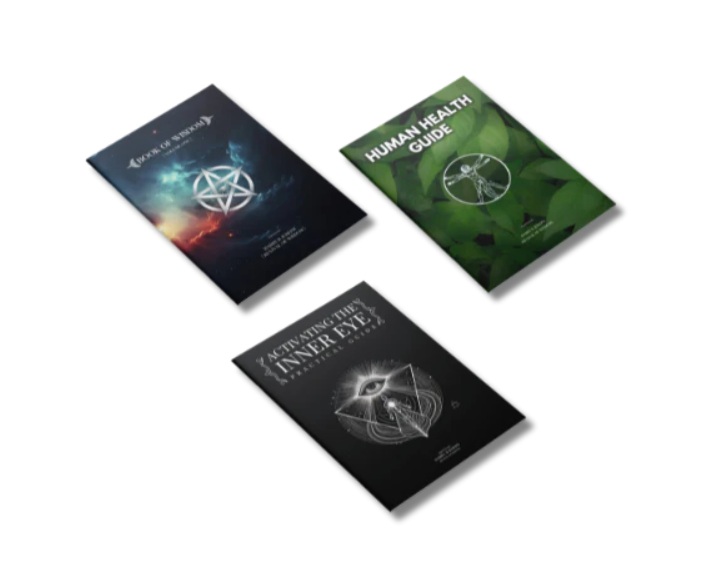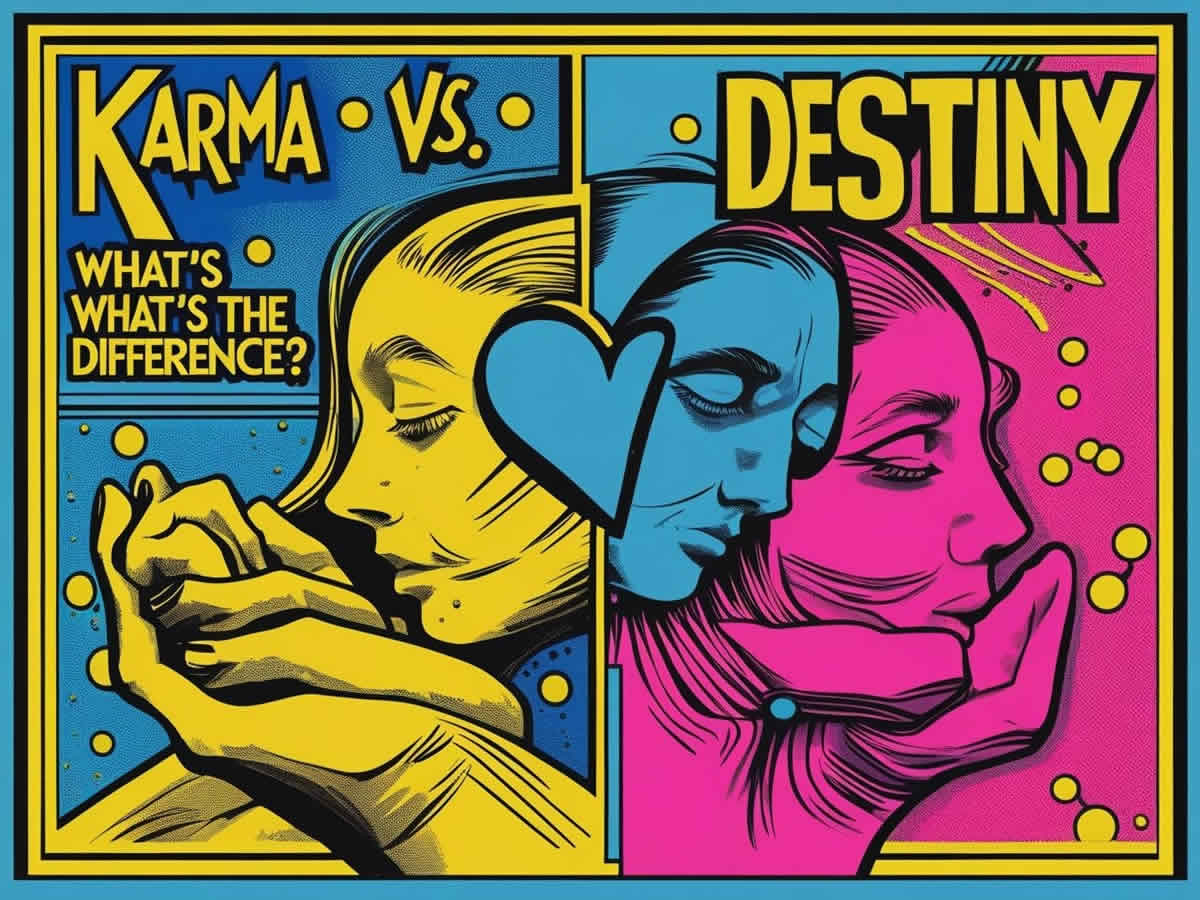
Karma Vs. Destiny: What’s The Difference?
Karma and destiny are two terms that frequently appear in discussions about life’s broader perspective. Although some people use these terms interchangeably, they have distinct backgrounds and meanings that make them unique. In simple terms, karma refers to the consequences of our actions, specifically how our current actions may impact our future experiences. Kind of like the saying, “What goes around, comes around.”
Destiny, on the other hand, leans more towards the idea that there’s a bigger plan or path that’s set out for us. It’s like the concept that some things in life are meant to be, no matter what you do. This idea pops up across various cultures, suggesting that there’s a certain degree of fate at play in everyone’s life journey.
It’s essential to grasp these two terms because they can provide valuable insights for personal growth. By understanding karma, you learn the importance of intention and how your actions impact not only your life but also the lives of those around you. On the other hand, considering destiny can encourage us to stay open to life’s unexpected turns and find peace in situations beyond our control. It’s like walking the tightrope between taking charge of your actions and trusting the universe’s broader plan.
Origins and Philosophical Backdrop
Karma and destiny have roots that run deep in both historical and cultural contexts. Karma kicks off in the philosophies of Eastern religions, particularly Hinduism, Buddhism, and Jainism. It’s a fundamental concept that centers on the moral law of cause and effect, suggesting that good actions lead to positive impacts, and evil actions bring about unfavorable outcomes.
In contrast, the idea of destiny finds its most ancient expressions in Greek and Roman mythology. The Greeks, for instance, had the Moirai, or Fates, who spun, measured, and cut the thread of life for every individual, setting destinies in stone. Roman mythology echoed this idea with the Parcae, illustrating the widespread concept’s prevalence across different cultures.
Discover the New and Improved Personal Numerology and Astrology Reports. These outstanding Reports deeply explore your unique, energetic blueprint.
Philosophical interpretations throughout history have reshaped our understanding of these concepts. Eastern philosophies typically see karma as a tool of spiritual evolution. A person’s actions in one life influence their state in the next, creating a cycle of growth that continues until enlightenment is achieved. On the other hand, Western philosophical ideas often portray destiny as a fate tied to heroism, challenges, and interpersonal drama, influencing the narrative arcs found in classic literature and beyond.
Understanding these origins is crucial because they frame how these concepts are applied today. While we might not be weaving our fate anymore, the actions we choose, seen through the lens of karma, still probably set us up for what’s to come. Recognizing this backdrop can also remind us that while these ideas sound ancient, they’ve been adapted and integrated into modern life, offering guidance on how to approach both success and adversity.
Key Differences Between Karma and Destiny
Karma and destiny might seem closely related, but they’re actually quite distinct when you dig a little deeper. Karma is all about the principle of action and reaction, where every deed has a corresponding outcome—think of it as a balance that tallies up our actions morally. It’s not about punishment or reward but learning from the ripple effects of our actions and intentions.
Destiny, however, leans into the idea of a path set in place, often seen as predetermined regardless of daily choices. It suggests that some aspects of our journey are fixed, beyond our immediate control. It’s like having a roadmap that outlines where we might end up, but not necessarily how we’ll get there.
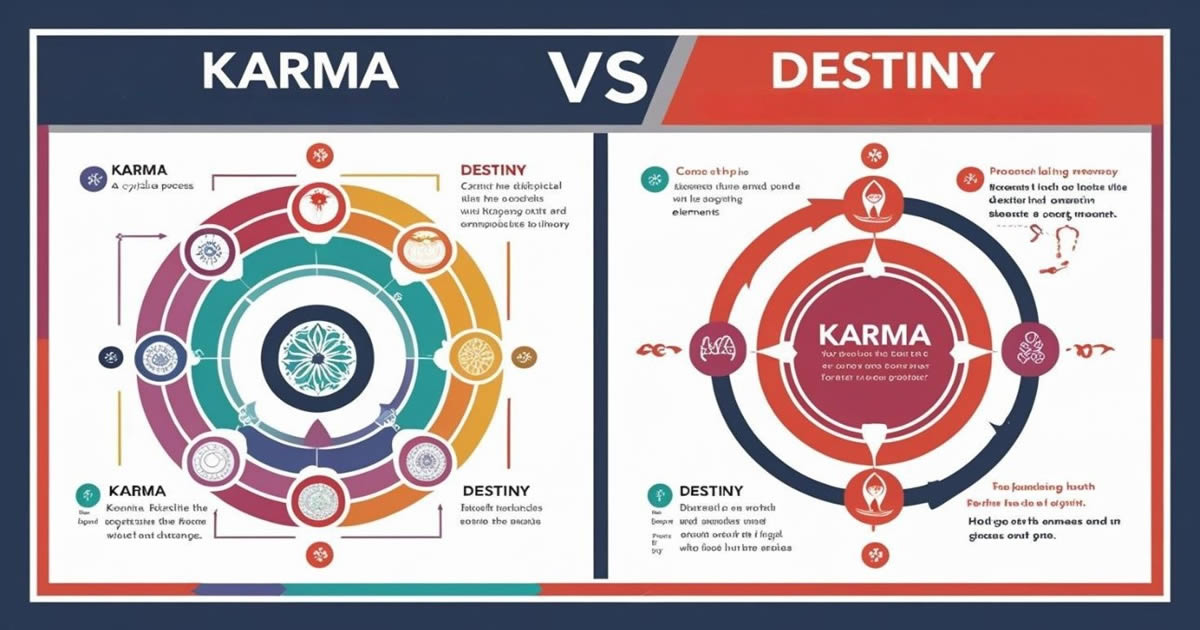
Where karma emphasizes personal agency and accountability, destiny tends to highlight the role of fate. This distinction often leads to intriguing debates about free will versus determinism—do we steer our own ships, or are we passengers along for the ride?
Acknowledging these differences can deepen our understanding of how we approach challenges and outcomes. Embracing karma may prompt us to align our actions with the kind of future we aspire to experience. Believing in destiny might help us accept specific outcomes as part of a larger, possibly grander, picture. Both concepts, in their own way, encourage reflection and a conscious approach to life’s many twists and turns.
Practical Applications and Real-Life Implications
Witnessing how karma and destiny unfold in our lives can be a profound and eye-opening experience. Karma, in everyday life, often manifests through interpersonal interactions. How you treat others can come back around—be it through respect, kindness, or negative vibes. Habits like lending a helping hand or just being a listener don’t just make moments better; they add a layer of positivity to your life’s flow.
Destiny influences major life decisions and the paths we often ponder. Some people find solace in believing that everything happens for a reason, usually finding purpose even in setbacks. This belief can guide folks when setting life goals or choosing a path that resonates deeply with who they are, embracing the idea that the journey is vital as the destination.
This book is a lovely story with you as the main character. It is a fully personalized and unique reading of your birth chart bundled in a beautiful hardcover deluxe book.
IT'S ALSO A FANTASTIC GIFT CHOICE!
People integrate both concepts in various ways to achieve a balanced life. Those attuned to karma may focus on nurturing relationships, self-improvement, and being mindful of the energy they emit and absorb. On the other hand, accepting one’s destiny might encourage individuals to trust in life’s rhythm and take calculated risks, knowing that while they control their efforts, the outcomes may not always be what they expect.
This blending of the two can lead to richer, more intentional lives. By acknowledging personal responsibility and embracing the unknown, people often find a unique harmony—acting where they have power and allowing fate to play its part where they don’t. This approach can provide comfort, ease stress, and foster a more meaningful engagement with the world.
Navigating Life with Karma and Destiny Today
Modern life often sees traditional beliefs merging with contemporary thinking, creating a unique blend of philosophy that many find compelling. The interplay of karma and destiny in today’s world is fascinating, offering tools to navigate life with greater mindfulness and purpose.
Spiritual practices now often encompass lessons from both karma and destiny. While some people engage in meditation or mindfulness to align their actions with positive intentions, others may use affirmations to remain open to the possibility that destiny is guiding their path. This dual approach helps maintain a balance between making deliberate choices and accepting life’s surprises.

For those looking to blend these concepts practically, trying out a few strategies can make a difference. Small daily actions, grounded in kindness and awareness, can gradually boost an individual’s track record of ‘good karma’. Meanwhile, fostering resilience in the face of changes can help one adapt better when destiny seems to take the wheel.
In contemporary settings, scientific understanding often meets spiritual awareness. While science leans heavily on logic and evidence, it doesn’t necessarily discount the value of living with purpose and intention. Recognizing that some things remain a mystery leaves room for both personal growth and acceptance of the unexplainable.
Balancing these elements requires an open mind and a willingness to reflect on our beliefs and actions. Whether you’re anchoring yourself in the present through karma or staying open to future possibilities with destiny, integrating these concepts can lead to a life that feels more intentional, connected, and enriched.
Related Topics
